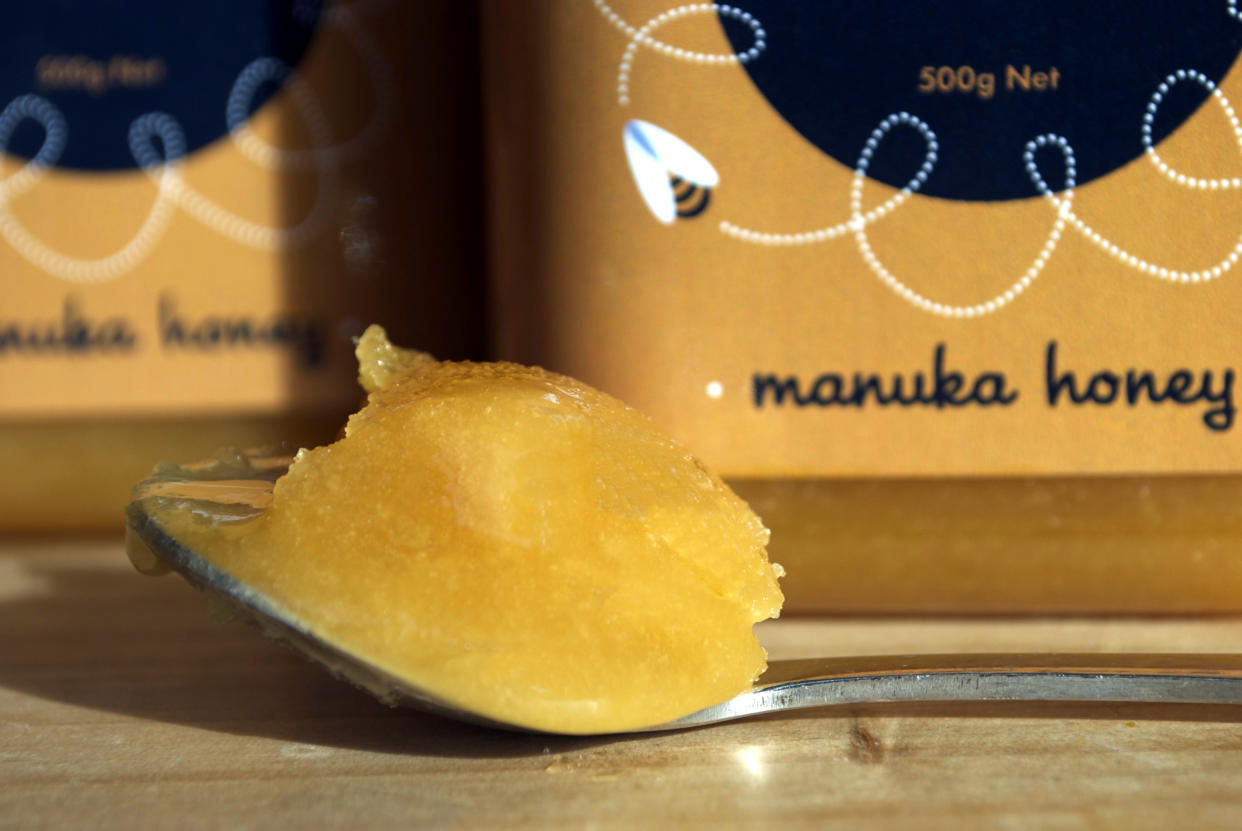That manuka honey in your beauty products may actually be fake

Like matcha and turmeric before it, manuka honey has grown from being a niche, beloved cultural dietary staple into a trendy beauty ingredient. More and more brands are touting manuka honey as the rock-star ingredient in their products. But according to new independent lab results, brands are misleading customers about the amount of manuka honey that’s actually in their product formulas — which means all those exciting ingredient benefits don’t show up in your skin. To make matters worse, New Zealand just slashed manuka honey regulations.
“Manuka honey is inherently antibacterial and has been used for centuries for wound healing,” says board-certified dermatologist Ted Lain, MD. “This characteristic separates manuka honey from other honey products and is why it is in such demand.” According to Lain, honey helps to soothe redness and inflammation and can increase hydration. But it’s the antibacterial quality that makes manuka honey different — and makes it a cash cow for New Zealand beekeepers.
For months, New Zealand has reportedly been battling it out over manuka honey regulations. In December, a regulatory body moved to increase the scrutiny on manuka. The new regulations would have required that a kilogram of manuka honey contain at least 5 micrograms of the chemical marker that indicates antibacterial qualities. According to the New Zealand Herald, the increased standards would have cost the economy $100 million a year in exports that could no longer be officially defined as manuka honey.
In response, the New Zealand Herald reports that New Zealand Beekeeping took legal action against the proposed regulations. “[Beekeepers] objected to the fact that a lot of good manuka honey was not going to be eligible to be called manuka honey anymore, and we were going to be lowering our exports of manuka honey by about 50 percent,” Russell Berry, the organization’s president, told a local radio show. This week, the regulators backed down. Now, honey will only need 1 microgram of the antibacterial chemical marker to be sold as manuka.
The move may have saved the local “family businesses” that depend on the ability to export manuka, but it’s worrisome for customers who may not be getting the high quality honey they expect.
Pacific Resources International, a manuka honey retailer, worked with a lab to conduct an independent study into the quality of manuka honey being sold in stores. The lab tested products for antibacterial chemical markers. Unfortunately, the results showed that manuka honey products sold by retailers such as Costco and Sprouts contain far lower antibacterial levels than their labels would suggest.
The good news? As Chicago-based dermatologist Jordan Carqueville tells Yahoo Lifestyle, honey in general can benefit your beauty routine. “All honey has natural antimicrobial effects, which can help with an at-home remedy to spot-treat an acne pimple or can be used in a mask to reduce acne-causing bacterial,” says Carqueville. “Because honey can be found in your cabinet, it is an easy, natural and less irritating way to treat acne.”
Read more from Yahoo Lifestyle:
The natural hairstyles at the ‘Black Panther’ premiere were fit for African royalty
Teen speaks out after her wig was ripped off in horrific bullying incident
Mom becomes an Instagram star after daughters teach her to love her stretch marks
Follow us on Instagram, Facebook, and Twitter for nonstop inspiration delivered fresh to your feed, every day.
